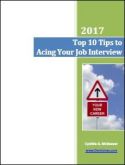 |
||
Is a Functional Resume Right For You?When is a functional resume the right choice? If you are a seasoned professional with considerable experience, you've probably been told by someone along the way to switch from a chronological resume format to a functional format. With a functional format, it's harder to figure out exactly how "seasoned" you are. This format can also work to your advantage if you are trying to change your career or industry focus - or if you have a choppy employment history. I can tell you from a recruiting standpoint, there's nothing more annoying than taking a look at a functional rendition of a candidate's experience. Yes, it will showcase your skills but you'll make me work to find out exactly how much experience you've got - at what level - and for what companies. If I need to work too hard to see the key things I'm interested in, can you guess what happens? You'll land in the "no" pile without a second thought. Fair? Probably not. But true? Absolutely! When a Functional Resume Format WorksThe functional format can be effective when you're interested in transitioning into a new industry or functional area. Beyond that, it's typically championed by outplacement services and career marketing organizations for candidates with a spotty tenure track record or candidates who are "seasoned." Let's hit this issue right up front: discrimination due to age (among other things) is illegal. However, companies do it all the time.  Older workers - and I'm talking people in their 40's and 50's, as well as 60's - are often discriminated against in the hiring process. I don't do it. In fact, some of the best candidates I've ever worked with have been older. But it's no secret that some companies do ignore the law. So, this resume format is designed to camouflage your age and/or rampant job hopping. The theory is that you will hook the reader with your strong skill set, and the hiring manager will be ready to overlook the fact that you've had five jobs in the past ten years. Creating Your Functional ResumeIn putting your resume together, you'll need to identify 5-6 functional strengths, and then present a series of accomplishments from your career that track to each skill highlighted. Typical strengths would include things like: New business development
Budgeting and planning Coaching and mentoring staff Consultative, Relationship Driven Customer Retention You can vary these according to your personal skill set. The key is to make sure that the strengths you highlight track to the position you're applying for. You will also need to support each strength with specific accomplishments. With a functional resume format, you're still going to list a chronological version of your work experience. But, it will be positioned toward the end of your resume, above the Academic Credentials or Education section, and it will just be a list of employers, positions and dates. The strong information you've presented before this chronology is designed to soften the blow for whatever issues might be lurking in your work history. For more information on creating a winning resume, browse through our detailed information on How to Write a Resume. We tackle every aspect of creating a resume that gets noticed. |
|
|
|
[?] SUBSCRIBE
|
||
About Us | Contact Us |
Privacy Policy |
||





